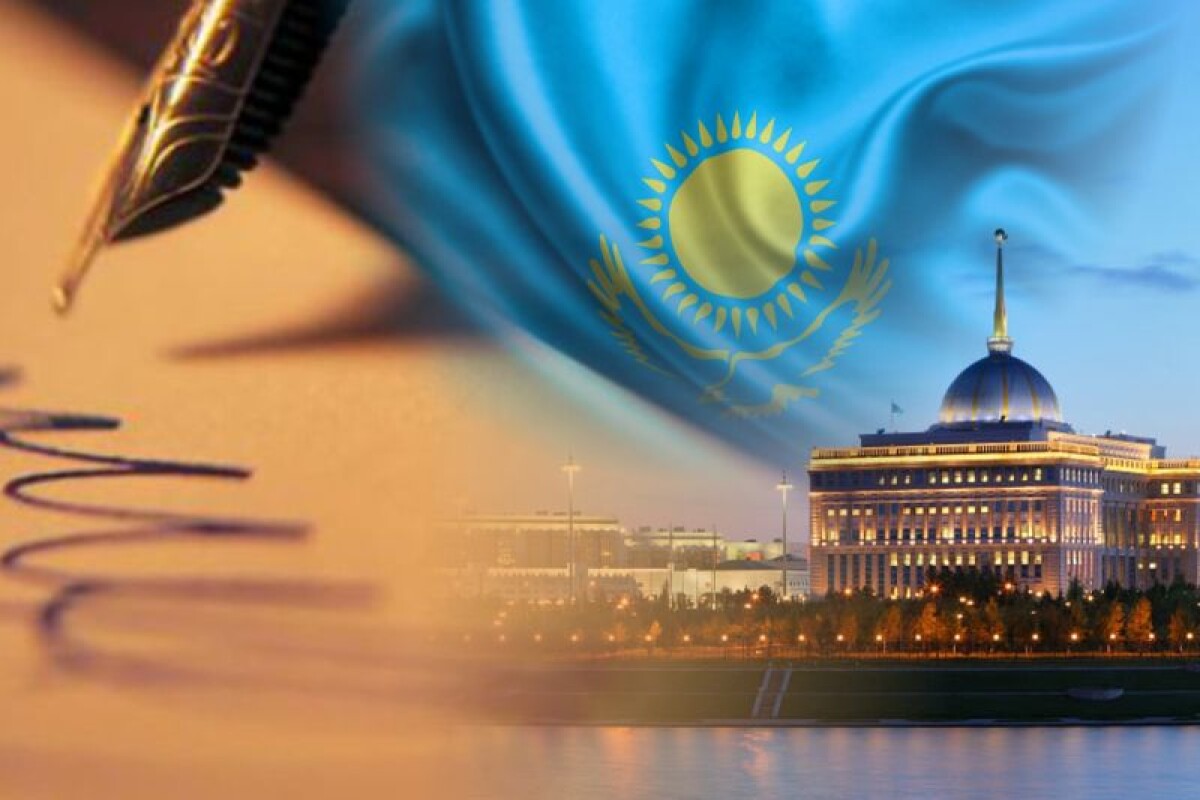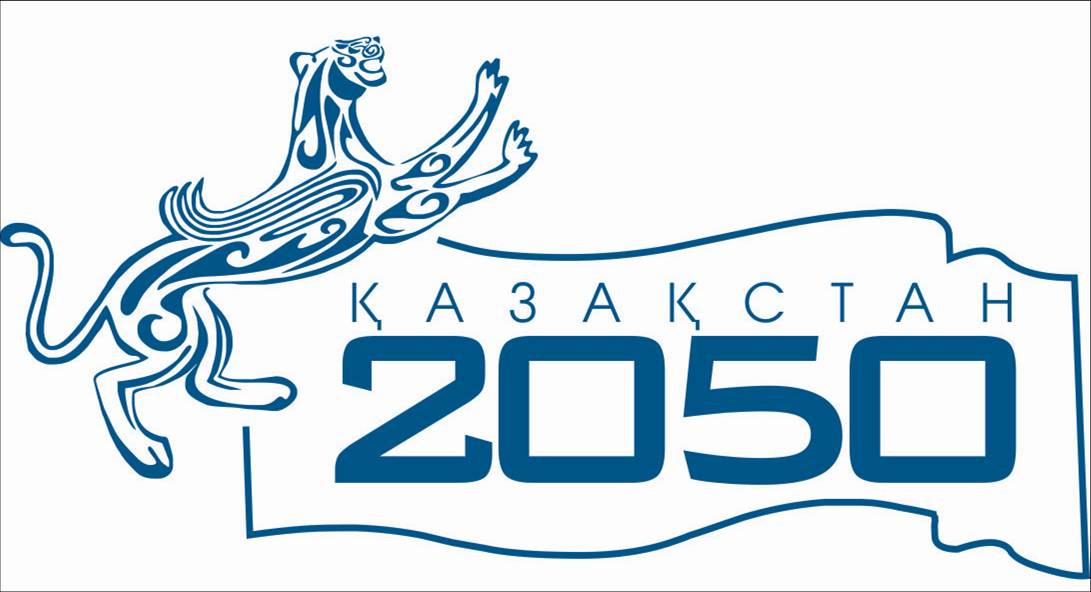
The reason for such an extensive attention to this problem is obvious: after experiencing a period of deep ideological crisis, the Kazakh society is gradually realizing the importance of state ideology as a social and political institution bringing citizens together under one flag and uniting as a single nation with their goals, values and interests. It is generally recognized that at the beginning of the 21st century, economic transformations take place against the backdrop of the rapidly growing problems of globalization and their challenges, and the focus of sharp contradictions is concentrated on the post-Soviet space.
Since the 1990s, Kazakhstan’s priorities were to construct a sovereign state and to form civic society institutions, including the institution of political parties. It is no secret that without serious through changes in the political system, it would have been impossible to achieve the transformation in many spheres. It can be stated that it is at this time that prerequisites arose for the emergence of civil society institutions that allowed articulating and aggregating the interests of the society and shaping the mechanism for bringing the demands of society to the organs of state administration.
In this regard, it should be noted that Kazakhstan has been able to cope with the most difficult tasks from early on: the establishment of a market economy. I am confident that reforms have a strong support among both public and academic community as they are being implemented for the well being of people. The state policy has placed a significant emphasis on the formation of the market economy and therefore market ideology has prevailed. This claim can be supported by the presence of a number of official documents, including Kazakhstan's strategy of formation and development as a sovereign state (1992), Strategy "Kazakhstan-2030" (1997), Strategy of industrial-innovative development of Kazakhstan up to 2015 (2003), Strategic Plan 2020 - Kazakhstan's path to leadership (2010); finally, justification and implementation of the initial stage of the long-term Strategy "Kazakhstan-2050".
The significance of Kazakhstan's "new modernization" is that Kazakhstan started with economic reforms by conducting it in a quite effective fashion, and then embarked on the political reforms. Only from January to August in 1995, there were issued 140 market-related decrees, which have the force of law. In a very short amount of time, a strong legislative foundation for market reforms was laid and it was demonstrated that strong state power is capable of building an effective market economy and a democratic society.
In every field of activity, the importance of reforms and strategies are growing every year. Directly in Kazakhstan, awareness of the paramount importance of the current social policy is clearly fixed in the annual addresses of Nursultan Nazarbayev to the people of Kazakhstan. Especially, in the Address of the President of the Republic of Kazakhstan "Strategy of Kazakhstan's entry into the list of the 50 most competitive countries in the world", it is said that reforms and social policy are aimed at supporting the most vulnerable segments of the population and the development of the economy.
 At the same time, the urgency of an in-depth study of social policy is determined, firstly, by a significant change in the functions of the state under market conditions, by the development of Kazakhstan as a social state, which determines the need to formulate and implement an active social policy adequate to these conditions. The state assumes social functions not just from any good intentions, but as a result of the public need for expanded social reproduction of the population, changing the role of man in the economy, manufacturing and understanding the dependence of social progress on the nation's potential.
At the same time, the urgency of an in-depth study of social policy is determined, firstly, by a significant change in the functions of the state under market conditions, by the development of Kazakhstan as a social state, which determines the need to formulate and implement an active social policy adequate to these conditions. The state assumes social functions not just from any good intentions, but as a result of the public need for expanded social reproduction of the population, changing the role of man in the economy, manufacturing and understanding the dependence of social progress on the nation's potential.
Second, more private, concrete changes in the tasks of social policy, due to the complex dynamics of post-communist development of the country. In the early 1990's, the importance of the state in the implementation of social policy has diminished, despite the fact that its significance as a political institution capable of ensuring a more equitable distribution of benefits from the development of a market economy, on the contrary, has increased. During the period of economic stabilization and growth, the severity of social problems decreased somewhat, which allowed the state to move from urgent measures to a more balanced long-term policy. In these conditions, the essence and content of social policy are changing; the scope of its action is expanding. It reflects the processes taking place on the economic, political, financial, migration, educational and other policy directions, because they are projected onto a person, a citizen, take into account his interests and rights enshrined in the Constitution. The modern world poses new challenges and challenges for the subjects of social policy and civil society. Thus, the world economic crisis that embraced Kazakhstan undoubtedly made it difficult to implement previously planned social programs and entailed a review of the amount of their financing. Solving social problems depends not only on the availability of sufficient financial resources, but also on the accuracy of the chosen strategy for implementing public policy. In this connection, the search for new approaches to the implementation of effective social policy in the context of the globalization of the economy is again being updated.
In Kazakhstan, new functions of the state, economic regulation and development of public-private partnership are practically being used in modernizing the economy. The problems of the emergence of a new statehood are being solved in an analytical manner.

Kazakhstan was the first among the countries of the post-Soviet space to argue that the main path of global development lies not through isolation, but through integration and unification processes.
At the heart of the country's success lies a highly principled decision to adopt the Country's Development Strategy until 2050, which determined the priority tasks for the development of society, the economy and ways to solve them.
Historical experience shows that the overcoming of systemic crises and the transition to the trajectory of sustainable social and economic development always began with the definition of long-term goals of such development and ways to achieve them. This approach was demonstrated by the "new frontiers" of Franklin Roosevelt, that lays at the heart of the post-war German and Japanese "economic miracle", the breakthrough of the "Asian tigers", the current successes of China. Strategic approaches allow subordinating the policy of today to long-term national interests. The tasks of economic policy are aimed at the full use of market forces in the national interests. This approach is based on the understanding that only a competitive, diversified, real market-based real economy is the only reliable stabilization fund in the face of the contradictions and challenges of the modern global world.
Therefore, the current strategy entitled "Kazakhstan-2050’’ makes an attempt to understand and discover the role of the state in solving economic, social, political, ideological problems. Particular attention was paid to the transformation of mentality, while the main emphasis was placed on the young generation, as part of the society most adapted to the new conditions and, due to demographic reasons, expected to implement the identified strategic priorities.
Analysis of the political life of Kazakhstan over the last decade and the process of forming the foundations of civil society demonstrate that the dynamics of political life in the country corresponds to the commonly accepted rules of democratizing societies, although it also has the inevitable specific features caused by the transition from totalitarianism to the new system.
 This enabled to work out all the activities of the authorities in regions and provided them with a purposeful, systematic and consistent character. As a result of the adopted set of measures, the state's resources were concentrated on solving the major tasks and were not dispersed, which was especially important during the transition period. But most importantly, the "Kazakhstan-2050" strategy, to a certain extent, contributed to the mobilization and consolidation of Kazakhstan's society.
This enabled to work out all the activities of the authorities in regions and provided them with a purposeful, systematic and consistent character. As a result of the adopted set of measures, the state's resources were concentrated on solving the major tasks and were not dispersed, which was especially important during the transition period. But most importantly, the "Kazakhstan-2050" strategy, to a certain extent, contributed to the mobilization and consolidation of Kazakhstan's society.
With the onset of the economic crisis, the ideology of ensuring a decent life for the people has come to the fore in the official discourse. It was documented in the President's Addresses "Growth of the welfare of citizens of Kazakhstan - the main goal of state policy" in 2008, "Through the crisis to renewal and development" in 2009.
The Address "New Decade of the New Economic Recovery of New Opportunities of Kazakhstan" in 2010 paved the way to the country's Strategic Development Plan to 2020 and, accordingly, and became an integral part of the "Kazakhstan 2030" Strategy. The key priority of the Strategic Development Plan of the Republic of Kazakhstan until 2020 is sustainable economic growth through accelerated industrialization and infrastructure development. At the basis of sustainable and balanced development of the country in the next 10 years should be accelerated diversification, increasing the competitiveness of the national economy, as well as a comprehensive increase in labour productivity. At the same time, the key to improving labour productivity is the introduction of innovations.
In 2012, President Nazarbayev during his Address entitled "Social and Economic Modernization, the main vector of development of Kazakhstan", noted a very important direction of modern reality. "Today, the purpose and meaning of social modernization are to prepare the society for life in the conditions of a new industrial-innovative economy, to find the best balance between the accelerated economic development of Kazakhstan and the broad provision of public goods, to establish social relations based on the principles of law and justice", Nazarbayev reminded.
.jpg) The Strategy entitled "Kazakhstan-2050" makes an attempt to comprehend and determine the role of the state in solving economic, social, political, ideological problems. Particular attention was paid to the transformation of mass consciousness, while the main emphasis was on the younger generation, as part of the society most adapted to the new conditions and, due to demographic reasons, designed to implement the identified strategic priorities.
The Strategy entitled "Kazakhstan-2050" makes an attempt to comprehend and determine the role of the state in solving economic, social, political, ideological problems. Particular attention was paid to the transformation of mass consciousness, while the main emphasis was on the younger generation, as part of the society most adapted to the new conditions and, due to demographic reasons, designed to implement the identified strategic priorities.
President has repeatedly mentioned that complicated issues taking place in the world economy, the geopolitical crisis and the upcoming changes in the world architecture will be withstood and handled only by strong states, and hardworking people.
Nursultan Nazarbayev emphasized that the new economic policy of "Nurly Zhol" is counter-cyclical, and it is elaborated to ensure the stable development of the state and society in the upcoming difficult period. This policy will ensure, first of all, the preservation of Kazakhstan's social achievements will fully meet the social obligations of the state to the people of Kazakhstan.
The priority of the new economic policy is the development of Kazakhstan's economic infrastructure, which will provide a positive effect for all industries.
The nomination of a new economic policy is legitimately and objectively justified by the consistency of our President's policy towards building a stable and prosperous Kazakhstan, creating a welfare society based on a strong state, developed economy and the opportunities for universal labour. The new economic policy of "Nurly Zhol" is a global step on the way to the number 30 of the most developed countries in the world. The head of state stressed that in order to pass the global exam for maturity, we should be united, strengthen confidence among all Kazakhstanis. The people of Kazakhstan must preserve unity and interethnic accord. We made the right choice today - a choice in favour of the unity of the people, prosperity and prosperity of our country. The unity of the people of Kazakhstan, the state language, the equality of all citizens and their shared responsibility for the honour and destiny of the Motherland will be the cornerstone that will ensure Kazakhstan's successful progress in the 21st century. We call upon all citizens to understand the deep meaning of the national idea "Mangilik El", which has become a reliable pillar our Independence, inexhaustible source of energy of our people, uniting all Kazakhstan people under one flag.
The state concept of the reform strategy in Kazakhstan is based on the principles of democratization and political reforms. This program is a vivid example of the availability of dynamism and effective approaches of the state to the sphere of further democratization of social processes. The years of independence of sovereign Kazakhstan have become for the country a difficult time for a radical transformation of society, the restructuring of economic and political systems and the revival of statehood. Nowadays the country continues to develop in accordance with the long-term Strategy "Kazakhstan-2050". An important role in it is assigned to the creation of an effective, professional state, in which there is a clear division of powers between central and local authorities, as well as the implementation of the principle of decentralization within the executive vertical, between the center and regions, between the state and the private sector. Successful measures are being taken to strengthen national security and domestic political stability, further democratization of society, and the development of regional cooperation.
The living standard of the population is steadily rising, and social problems are being resolved as well. Kazakhstanis demonstrate an interest in this ongoing process.
Therefore, all reforms, including government related to issues of redistribution of power should not violate the existing system of checks and balances, maintain the existing stability, promote the development of civil society institutions.
The Constitution of the Republic of Kazakhstan guarantees the rights of parties, movements, associations, with the exception of those whose activities are aimed at "forcible alteration of the constitutional order, violation of the integrity of the republic, undermining the security of the state, inciting social, racial, national, religious, class and clan strife". The intervention of the state in the affairs of parties and public associations is not allowed.
Political parties play an important role in social, political and public life, acting as a link between society and the state. The task of the parties is to actively participate in political life at all stages of the political process: in elections, in the formation of representative bodies of power, in the adoption of political and state decisions. In a democratic state of competition among political parties, a key role is assigned.
In general, the implementation of these reforms suggests that a democratic regime (mature, or consolidated, democracy) will be reinforced in Kazakhstan.
MINUAROV I.B.
